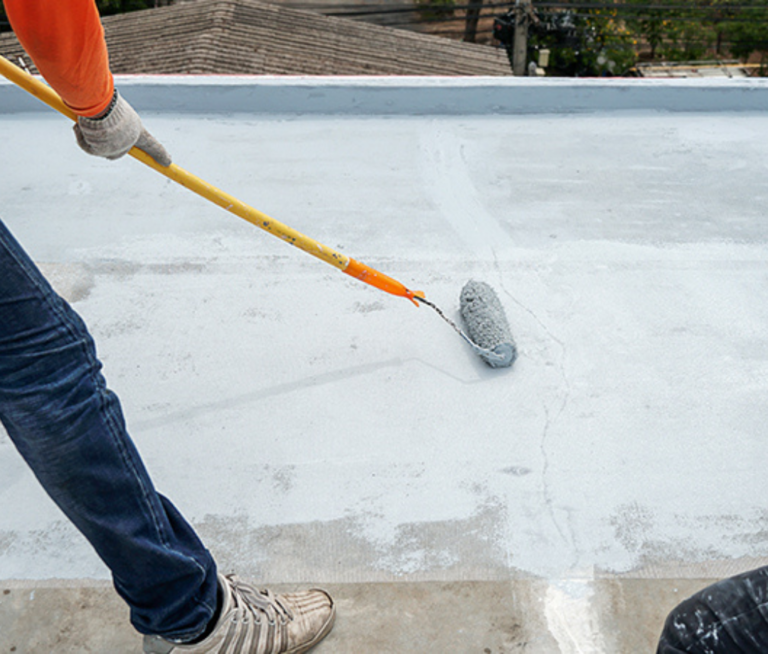Waterproofing your house during construction is a proactive step that ensures long-term durability and protection against environmental challenges. Here’s why it’s beneficial:
1. Prevents Structural Damage
Water infiltration can weaken the foundation and structural elements of your house. Proper waterproofing prevents cracks, mold growth, and deterioration, ensuring the longevity of your property.
2. Enhances Property Value
A house with effective waterproofing is more attractive to buyers. It signals quality construction and reduces future maintenance costs, making it a valuable investment.
3. Improves Indoor Air Quality
Moisture buildup can lead to mold and mildew, negatively affecting indoor air quality. Waterproofing keeps interiors dry, ensuring a healthier living environment for your family.
4. Reduces Maintenance Costs
Waterproofing minimizes damage caused by leaks or seepage, reducing the need for frequent repairs. Over time, this saves money and prevents costly renovations.
5. Increases Energy Efficiency
Waterproofing helps seal your house against drafts and moisture, improving insulation. This enhances energy efficiency and reduces utility bills by keeping your home comfortable year-round.
6. Protects Interiors and Belongings
Water damage can ruin floors, walls, furniture, and appliances. Waterproofing safeguards your investments by keeping your interiors safe and dry.
Why Choose Waterproofing Services in Houston?
If you’re constructing a house in Houston, the region’s humid climate and unpredictable rainfall make waterproofing a necessity. Professional waterproofing contractors in Houston provide tailored solutions to protect your property from water damage, ensuring durability and peace of mind.
Investing in waterproofing during construction not only protects your home but also ensures a safe and comfortable environment for years to come.
FAQs About Waterproofing Your House During Construction
1. Why is waterproofing important during construction?
Waterproofing prevents water seepage, protecting your home’s foundation, walls, and interiors from damage. It ensures long-term durability, reduces maintenance costs, and enhances property value.
2. What areas of a house should be waterproofed?
Critical areas include the foundation, basement, roof, exterior walls, bathrooms, and kitchen. Waterproofing these areas ensures comprehensive protection against water damage.
3. How does waterproofing improve energy efficiency?
Waterproofing seals gaps and prevents moisture intrusion, which can improve insulation. This helps maintain a stable indoor temperature, reducing energy consumption and utility bills.
4. Can waterproofing prevent mold and mildew?
Yes, waterproofing eliminates moisture, which is essential for mold and mildew growth. This helps maintain better indoor air quality and protects your health.
5. How often should waterproofing be checked or maintained?
While waterproofing during construction provides long-lasting protection, regular inspections every few years are recommended to ensure the waterproofing remains effective.
6. Why should I choose professional waterproofing services in Houston?
Houston’s humid climate and frequent rains make professional waterproofing essential. Experienced contractors in Houston use advanced techniques and materials tailored to the region’s specific needs, ensuring optimal protection.
7. What is the cost of waterproofing a house during construction?
The cost varies depending on the size of the property, materials used, and specific areas being waterproofed. Consulting a professional waterproofing contractor will help provide an accurate estimate.
8. Can I waterproof my house after construction?
Yes, post-construction waterproofing is possible, but it is often more expensive and less effective compared to incorporating it during the construction phase.
Waterproofing is a critical step in ensuring your house remains resilient, comfortable, and valuable over time.

